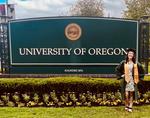Lea E. Frank
Eugene, OR
Biography
I’m a recent PhD graduate with 8+ years of experience in project management, experimentation, statistical analysis, and data storytelling. Equipped with a passion for data and a hunger to learn (and some other relevant skills), I’m eager to tackle data problems with real-world impact. This website contains a portfolio of projects highlighting my proficiency in experimental design, data wrangling, statistical analysis, machine learning, data visualization, and storytelling. My projects are organized into two categories to 1) highlight relevant data science projects, and 2) provide context of my research background in the domain of human learning and memory. Links to blog posts, dashboards, and Github repos are provided!
- data science
- quantitative research
- experimentation
- statistical analysis
- human behavior
PhD in Cognitive Neuroscience, 2022
University of Oregon
Specialization in Educational Data Science, 2022
University of Oregon
MS in Cognitive Neuroscience, 2017
University of Oregon
BA in Psychology, 2014
Marist College
Projects
Predicting real v. fake news using natural language processing
For this project, I wanted to see if I could use machine learning to reliably predict whether a news article was real of fake. I used a collection of real and fake news articles, which can be found here.
Tutorials for functional programming in R
For my Functional Programming in R course, I worked with a group to create a set of tutorials and walkthroughs for some of the concepts we learned throughout the course, including data cleaning, parallel iteraion with purrr, looping and writing functions.
Class Imbalance in Multivoxel Pattern Analysis
In functional MRI multivoxel pattern analysis (MVPA), we are sometimes faced with classification problems where the training set contains unequal class sizes. For example, if we are trying to predict activity for remembered v.
Predicting student performance on statewide exams using machine learning
For my final project in Applied Machine Learning for Educational Data Science, I worked with a team to develop a predictive model for student performance on statewide exams of reading and math.
Cognitive reserve in traumatic brain injury
There is substantial variability in the clinical expression of neuropathology following traumatic brain injury (TBI). These inconsistencies may be explained, in part, by cognitive reserve. The cognitive reserve theory posits that intelligence and intellectual enrichment can protect against neuropathology.
Differential functional connectivity between anterior and posterior hippocampus
The hippocampus contributes to both remembering specific events and generalization across events. Recent work suggests that information may be represented along the longitudinal axis of the hippocampus at varied levels of specificity: detailed representations in the posterior hippocampus and generalized representations in the anterior hippocampus.
Evaluating methods for background connectivity
Functional connectivity is used in MRI to understand the functional relevance of coherent brain activity between brain regions. Importantly, functional connections contains idiosyncratic features that can be leveraged to identify individuals and predict individual behavior.
Functional connectivity between memory and reward centers
External motivation, such as a promise of future monetary reward for remembering an event, can affect which events are remembered. Reward-based memory modulation is thought to result from encoding and post-encoding interactions between dopaminergic midbrain, signaling reward, and hippocampus and parahippocampal cortex, supporting episodic memory.
Individual differences in memory generalization
Memory allows us to remember individual experiences (memory specificity) as well as link across experiences to form generalized knowledge (generalization). Still debated, however, is the degree to which generalization relies on unique processes beyond memory for individual experiences, such as the integration of related memories into a combined representation.
Integration effects on interference and source confusion
Memory integration refers to the process by which new experiences are linked to and stored with related memories. How memory integration affects the individual memories is unclear. Some have argued that memory integration protects against interference between related memories, while others have shown that memory integration leads to interference.
